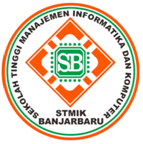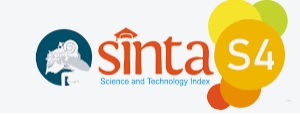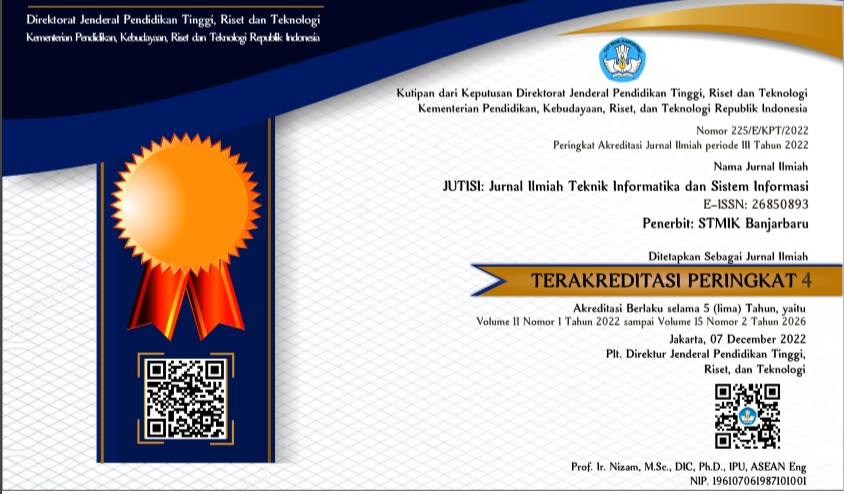Analisis Sentimen Tweet Pengguna Twitter Terkait Diabetes Menggunakan Metode Naive Bayes
Abstract
Diabetes is a disease that has serious implications for the health and overall well-being of individuals, and there are diverse perspectives within society regarding this condition, leading to prolonged debates. Twitter is a popular platform where public opinions are often shared, and sentiment analysis on Twitter can provide insights into users' perceptions of diabetes, whether positive, negative, or neutral, to understand the health literacy regarding obesity among Twitter users. Sentiment analysis was conducted using text mining methodology, with a total of 26,038 crawled tweets, resulting in a sample of 4,635 data points. Through the Naïve Bayes algorithm, the sentiment analysis yielded 22% positive sentiment, 14% negative sentiment, and 64% neutral sentiment. The accuracy rate achieved was 87%. The sentiment analysis of tweets related to diabetes using text mining leaned more towards neutral sentiment than negative or positive sentiment. The accuracy of the Naïve Bayes algorithm falls within the category of "Good Classification".
Keywords: Sentiment Analysis; Text Mining; Twitter: Diabetes: Naïve Bayes.
Â
Abstrak
Diabetes merupakan suatu penyakit yang berdampak serius terhadap kesehatan dan seluruh bagian tubuh penderitanya, banyak pandangan dari masyarakat terhadap penyakit diabetes yang menimbulkan perdebatan berkepanjangan. Twitter merupakan pilihan platform yang sering digunakan untuk memberikan opini publik, analisis sentimen di Twitter dapat memberikan gambaran persepsi pengguna terhadap diabetes baik secara positif, negatif ataupun netral untuk mengetahui literasi kesehatan terhadap persepsi obesitas pengguna platform Twitter. Analisis sentimen dilakukan dengan metode text maining dengan jumlah crawling sebanyak 26,038 dan menghasilkan sampel 4,635 data. Melalui algoritme Naïve Bayes hasil analisis sentimen didapatkan sentimen positif sebesar 22%, sentimen negatif sebesar 14%, dan sentimen netral sebesar 64%. Nilai akurasi dihasilkan sebesar 87%. Analisis sentimen tweet terkait diabetes menggunakan text maining lebih mengarah pada sentimen netral dibandingkan sentimen negatif dan sentimen positif. Nilai dari akurasi algoritme Naïve Bayes masuk dalam kategori “Good Classificationâ€.
Â
Keywords
References
Kementerian Kesehatan RI., “Infodatin tetap produktif, cegah, dan atasi Diabetes Melitus 2020,†Pusat Data dan Informasi Kementerian Kesehatan RI. pp. 1–10, 2020.
Z. Liu and I. Weber, “Is twitter a public sphere for online conflicts? a cross-ideological and cross-hierarchical look,†Lect. Notes Comput. Sci. (including Subser. Lect. Notes Artif. Intell. Lect. Notes Bioinformatics), vol. 8851, pp. 336–347, 2014, doi: 10.1007/978-3-319-13734-6_25.
T. Luo, S. Chen, G. Xu, and J. Zhou, “Trust-based Collective View Prediction,†Trust. Collect. View Predict., no. June, 2013, doi: 10.1007/978-1-4614-7202-5.
A. Yasar and M. M. Saritas, “Performance Analysis of ANN and Naive Bayes Classification Algorithm for Data Classification,†Int. J. Intell. Syst. Appl. Eng., vol. 7, no. 2, pp. 88–91, 2019, doi: 10.18201/ijisae.2019252786.
F. F. Mailo and L. Lazuardi, “Analisis Sentimen Data Twitter Menggunakan Metode Text Mining Tentang Masalah Obesitas di Indonesia,†J. Inf. Syst. Public Heal., vol. 4, no. 1, pp. 28–36, 2019.
R. Apriani et al., “Analisis Sentimen dengan Naïve Bayes Terhadap Komentar Aplikasi Tokopedia,†J. Rekayasa Teknol. Nusa Putra, vol. 6, no. 1, pp. 54–62, 2019, [Online]. Available: https://rekayasa.nusaputra.ac.id/article/view/86
T. T. Widowati and M. Sadikin, “Analisis Sentimen Twitter terhadap Tokoh Publik dengan Algoritme Naive Bayes dan Support Vector Machine,†Simetris J. Tek. Mesin, Elektro dan Ilmu Komput., vol. 11, no. 2, pp. 626–636, 2021, doi: 10.24176/simet.v11i2.4568.
W. Yulita et al., “Analisis Sentimen Terhadap Opini Masyarakat Tentang Vaksin Covid-19 Menggunakan Algoritme Naïve Bayes Classifier,†Jdmsi, vol. 2, no. 2, pp. 1–9, 2021.
L. A. Andika, P. A. N. Azizah, and R. Respatiwulan, “Analisis Sentimen Masyarakat terhadap Hasil Quick Count Pemilihan Presiden Indonesia 2019 pada Media Sosial Twitter Menggunakan Metode Naive Bayes Classifier,†Indones. J. Appl. Stat., vol. 2, no. 1, p. 34, 2019, doi: 10.13057/ijas.v2i1.29998.
N. R. Wardani and A. Erfina, “Analisis Sentimen Masyarakat Terhadap Layanan Konsultasi dokter Menggunakan Algoritme Naive Bayes,†SISMATIK (Seminar Nas. Sist. Inf. dan Manaj. Inform., pp. 12–18, 2021.
J. Eka Sembodo, E. Budi Setiawan, and Z. Abdurahman Baizal, “Data Crawling Otomatis pada Twitter,†no. October 2018, pp. 11–16, 2016, doi: 10.21108/indosc.2016.111.
S. Khairunnisa and S. Al Faraby, “Pengaruh Text Preprocessing terhadap Analisis Sentimen Komentar Masyarakat pada Media Sosial Twitter ( Studi Kasus Pandemi,†vol. 5, no. April, pp. 406–414, 2021, doi: 10.30865/mib.v5i2.2835.
I. M. A. Agastya, “Pengaruh Stemmer Bahasa Indonesia Terhadap Peforma Analisis Sentimen Terjemahan Ulasan Film,†J. Tekno Kompak, vol. 12, no. 1, p. 18, 2018, doi: 10.33365/jtk.v12i1.70.
G. Shalunts, G. Backfried, and N. Commeignes, “The Impact of Machine Translation on Sentiment Analysis,†Fifth Int. Conf. Data Anal., no. c, pp. 51–56, 2016.
M. Taboada, “Sentiment Analysis: An Overview from Linguistics,†Annu. Rev. Linguist., vol. 2, no. February, pp. 325–347, 2016, doi: 10.1146/annurev-linguistics-011415-040518.
How To Cite This :
Refbacks
- There are currently no refbacks.











